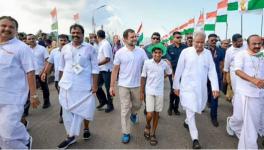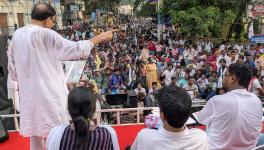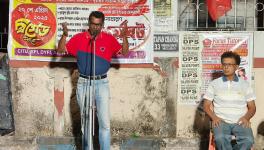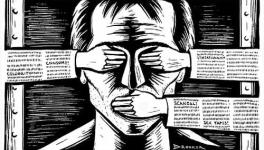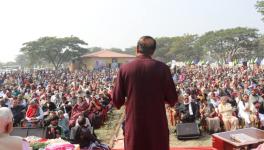When Public Good Faces a Faith Hurdle
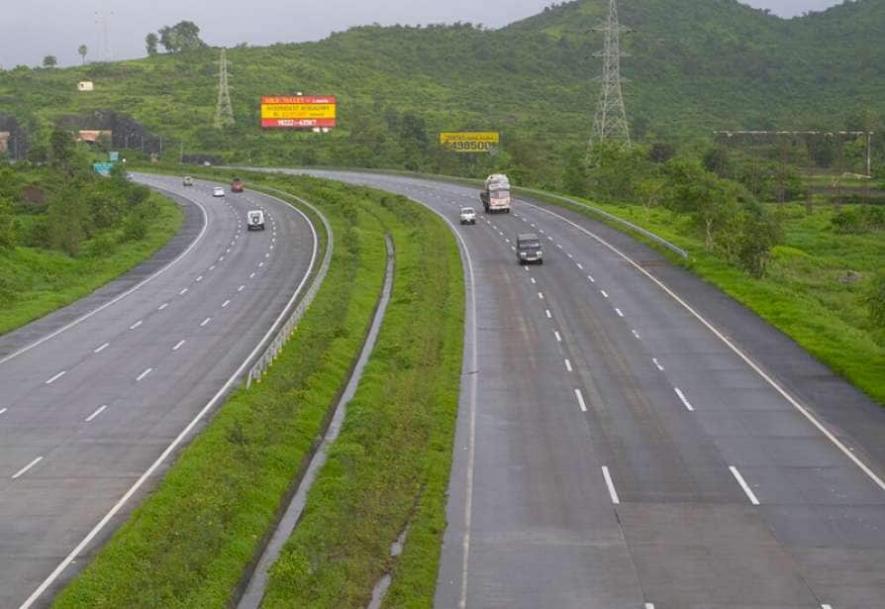
Image Courtesy: Mathrubhumi English
‘The sublime and the ridiculous are often so nearly related that it is difficult to class them separately. One step above the sublime makes the ridiculous, and one step above the ridiculous makes the sublime again.’ --Thomas Paine, The Age of Reason.
The idea of public good faced a faith hurdle in Kerala recently. The issue was the widening of National Highway 66 on a stretch in Umayanalloor village, Thazhuthala, and adjacent towns of the Kollam district. A batch of petitions challenged the highway because two temples and mosques were in its alignment. It was a tricky situation, and a hasty decision may well have had consequences.
Without wavering on constitutional principles, the Kerala High Court handled the case skilfully. A single-judge bench of Justice PV Kunhikrishnan rejected petitions that opposed the land acquisition and asked citizens to rise above difficulties for better highways for all citizens. It emphasised that courts could not intervene in acquisition proceedings unless there is patent illegality or malafide action.
To convince a section of people, Justice Kunjikrishnan did not forget to say, “God will forgive us and protect the petitioners, the authorities, and also the author of the judgement if religious institutions are affected during the development works of the national highways.”
Undoubtedly, there is a palpable sense of relief in the administration over the outcome. In an ambience saturated with the explosion of religiosity, works for the larger common good often get mired in unnecessary controversies.
The widening of the Lucknow-Jhansi highway near Jalaun in Uttar Pradesh got delayed for more than 14 years as people opposed the removal of two temples, two mosques, and three bazaars. The busy highway had regular traffic jams and accidents. According to conservative estimates, more than 130 people died in accidents on this stretch.
The situation was not easy to handle, and the region had witnessed communal flare-ups, which had vitiated the atmosphere. What clinched the matter was the role of the district magistrate and police superintendent. They spoke with representatives of Hindus and Muslims and convinced them to relocate or remove the shrines. The communities ultimately came together to have the busy road cleared without malice or ill-will.
In Mahim, Mumbai, citizens and authorities displayed similar exemplary cooperation in 2017 when eight shrines, including the historic cross outside Victoria Church, a temple in the Macchimar Colony and a mazaar of a Muslim saint, were removed after orders of the Bombay High Court. Like in Jalaun, these shrines hindered movement and traffic, causing inconvenience. Earlier that year, there were protests in the neighbouring Bandra locality as the Brihanmumbai Municipal Corporation (BMC) had demolished a Cross on a busy street, also following court orders. The hasty demolition was held responsible for the flare-up.
In the third decade of the 21st century, it is crystal clear that neither Umayanalloor, nor Jalaun, nor Mahim are exceptions. A vast majority of citizens know they cannot transform thoroughfares into religious worship or congregation places, no matter what political leaders do or say to stoke tensions. They also know doing so can become a subject of tensions given the opportunity. Serpentine queues on special occasions at such shrines choke cities more than they already are.
Recent history has many examples from different parts of the country which have a happy ending. In Jabalpur, Madhya Pradesh, the authorities relocated 168 holy places of Hindus, Muslims and Sikhs a decade ago. They were causing tremendous inconvenience and traffic jams, besides unnecessary social tensions. In Madurai, the city of temples, more than 250 temples, two churches and one dargah, all illegally constructed and inconveniently located, were relocated.
The run-up to the ruling on illegal shrines from Mumbai streets started in 2002. Social activist Bhagwan Raiyani filed a Public Interest Litigation in the Bombay High Court, saying they cause inconvenience and threaten the peace. The High Court delivered its historical judgement instructing the BMC to remove these structures from across the city and submit an Action Taken Report (ATR) by November 2003. The BMC demolished more than a thousand illegal shrines in this operation.
In an interview with rediff.com in 2003, Raiyani explained the purpose behind his petition. “...Suppose I am a Hindu and construct an illegal temple then this will affect other passers-by from different religions. The same is true with other co-religionists; if they construct an illegal mosque or church it creates problems for people from other religions. Another point is that they create unhygienic conditions around that area. They go on to build communication centres or sometimes people play cards near those places...”
In other words, even in areas that have seen communal flare-ups, and in any Indian city, where members of different communities live together, all yearn for peaceful coexistence. In a just society, public thoroughfares cannot get transformed into places of religious worship, more so if these congregations can lead to conflict and violence, given the opportunity. It is a duty to see that the serpentine queues that form on special occasions at such shrines do not choke our cities.
Moderation and acceptance are parts of a continuous struggle to ensure that democracy does not get subsumed by religious majoritarianism. The implication is clear: the participation of all in running society must not get impeded by the mushrooming of structures that promote overt religiosity.
The author is an independent journalist. The views are personal.
Get the latest reports & analysis with people's perspective on Protests, movements & deep analytical videos, discussions of the current affairs in your Telegram app. Subscribe to NewsClick's Telegram channel & get Real-Time updates on stories, as they get published on our website.














